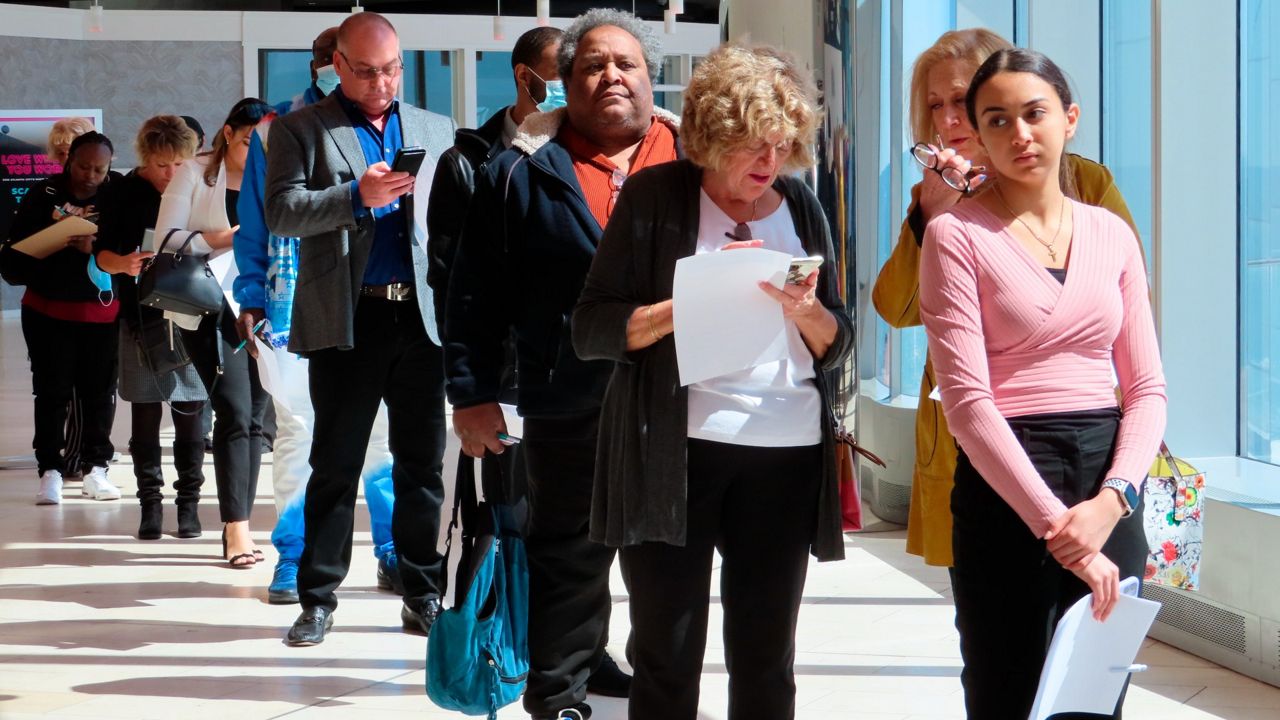Faith leaders from around New York are backing a measure meant to provide support for people who do not otherwise qualify for federal unemployment benefits as state lawmakers and Gov. Kathy Hochul negotiate a state budget due at the end of the month.
A letter sent to Hochul and state lawmakers was backed by 62 faith leaders and officials in New York in support of the so-called unemployment bridge program. The proposal would provide support to freelancers, undocumented workers and people who have been in prison who did not receive unemployment aid.
"Exclusion from unemployment insurance is one of these unjust systems. Unemployment compensation is an essential labor right," the faith leaders wrote in the letter. "It provides a cushion for workers who are laid off or whose employers go out of business. It allows unemployed workers to pay their rent, feed their children and make ends meet until a new job is found. And unemployment compensation helps workers speak up against labor violations on the job and leave abusive employers without worrying that they’ll lose everything if they do so."
The proposal is being made after lawmakers agreed to an excluded workers fund in 2021 that was meant to cover workers who did not receive federal pandemic aid.
Supporters have estimated an unemployment bridge program would provide support for about 750,000 workers in the state if given final approval.
The proposal also comes as policymakers are girding for a potential economic downturn, though the labor market overall has remained strong nationwide even as New York has been slow to recover from the effects of the COVID-19 pandemic.
"We know many excluded workers by the essential labor they provide our families and communities. We know these workers by name because, when they are laid off with no safety net to fall back on, our pantries and outreach centers feed and clothe their families and help with unpaid rent," the letter states. "Some are members of our congregations and they are our neighbors. Our congregations have done our part with charitable support to ease their suffering caused by lost income. We cannot do much more to help them."



